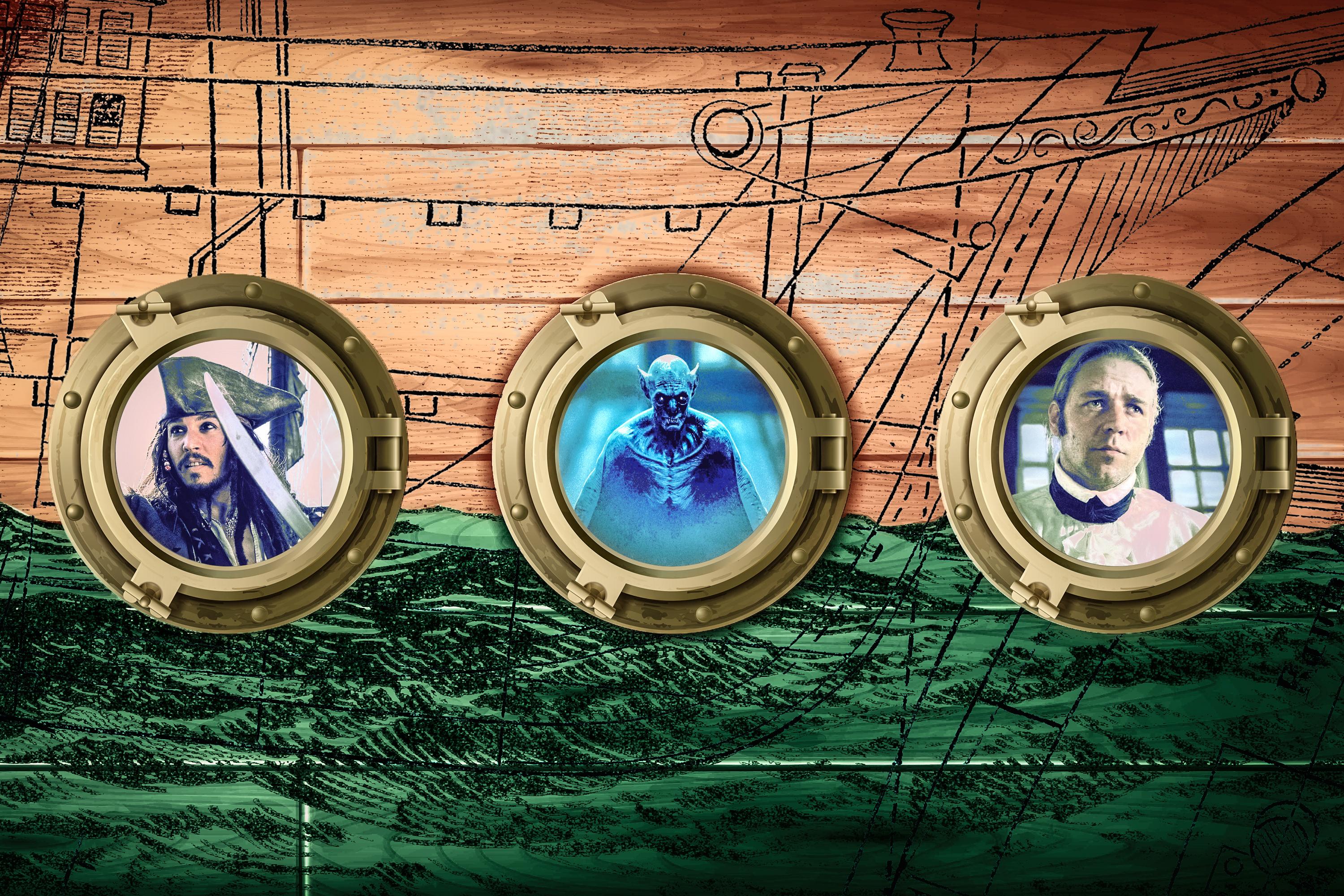
In the journalist David Grann’s latest nonfiction book, The Wager, the voyage of an 18th-century British Royal Navy vessel unfolds with all the grisliness of a David Cronenberg movie. Hundreds of sailors, packed like sardines in the bowels of the HMS Wager, succumbed to typhus and scurvy: a fate that weary survivors found relatively merciful compared to the constant barrage of waves hammering the ship during its attempted passage around Cape Horn. (Even for modern seagoers, Cape Horn is considered one of the most treacherous routes in the world.) The Wager makes life aboard the boat seem like hell on earth, but despite all the stomach-turning details, the book is impossible to put down. I would compare the experience to a slow-motion trainwreck, but a slow-motion shipwreck is more apt: After all, the real meat of the account comes when the Wager breaks apart on an uninhabited island and the castaways split into factions before devising a mutiny. The story only gets wilder from there; for lovers of Dad Television, I strongly endorse The Wager as a quintessential Dad Book.
Over the years, Grann’s immersive brand of historical nonfiction has drawn plenty of admirers, and Hollywood has taken notice. Grann’s 2017 book, Killers of the Flower Moon, was adapted into a feature film by Martin Scorsese that premiered to rave reviews at the Cannes Film Festival in May. (The movie will have a wide release in the fall before streaming on Apple TV+.) What’s even more thrilling is that Scorsese isn’t done exploring the Grann-verse: The auteur will be helming an adaptation of The Wager with Leonardo DiCaprio along for the ride. Rest assured, I’m already fan-casting Hollywood’s finest That Guys to round out the ship’s ill-fated crew.
When The Wager does make its way to the big screen, it will be the rare new entry in an extremely niche subgenre: Old Wooden Ship Movies (real term). Suffice it to say, seafaring epics have been mostly abandoned by major studios in favor of superhero franchises, remakes, and, if Mattel has its way after the resounding commercial success of Barbie, adaptations of various toy properties. But maybe, just maybe, Old Wooden Ship Movies are having a minor resurgence: This weekend sees the release of The Last Voyage of the Demeter, a long-gestating adaptation of a single chapter from Bram Stoker’s Dracula in which the doomed members of a merchant ship are stalked and killed by the infamous vampire.
Considering that The Last Voyage of the Demeter had been stuck in development hell since the early aughts, expectations should be tempered—that the film even made it to the big screen after so many setbacks is astonishing in and of itself. (Admittedly, director André Øvredal’s description of it as “Alien-on-a-ship in 1897” is one hell of a sales pitch.) But if Old Wooden Ship Movies were to come back into fashion, it might have something to do with a playbook established 20 years ago: a time when two different yet highly acclaimed blockbusters took Hollywood by storm.
Despite both taking place on old-timey ships, Master and Commander: The Far Side of the World and Pirates of the Caribbean: The Curse of the Black Pearl make for odd bedfellows. On the one hand, you have a no-frills adaptation of Patrick O’Brian’s historical seafaring novels set during the Napoleonic wars: a time when, to quote Master and Commander’s iconic opening text, oceans are now battlefields. Then there’s Pirates of the Caribbean, which is based on Disney’s eponymous theme park attraction and exists in a kooky fantasy world where the characters best start believin’ in ghost stories—because they’re in one.
In many ways, Master and Commander and Pirates of the Caribbean represented Hollywood’s past and future alike. Even at the time of its release, Master and Commander already seemed like it belonged to a bygone era when tentpoles were driven by rich character dynamics and practical effects: If the movie felt timeless, it might have had something to do with its use of full-scale replicas of 19th-century man-of-war ships. Conversely, you can see the influence of Pirates of the Caribbean throughout the modern blockbuster landscape. Scorsese is right to deride the Marvel Cinematic Universe as something closer to theme park rides; Pirates of the Caribbean helped establish the blueprint by being literally based on one. (Disney has also kept turning other attractions into films, including the Pirates-esque Jungle Cruise.)
In a sign of where moviegoing habits were headed, Master and Commander made a modest $212 million at the box office against its $150 million production budget. O’Brian’s book series naturally lent itself to sequels, but despite critical acclaim and 10 Oscar nominations, including one for Best Picture, a Master and Commander franchise never materialized. Meanwhile, Pirates of the Caribbean became one of the highest-grossing movies of 2003, collecting more than $650 million. (The film also scored largely positive reviews, some of which admitted it was better than a theme park adaptation had any right to be.) As a result, director Gore Verbinski shot back-to-back sequels to round out a trilogy.
Because of their noticeable differences, it’s always tempting to discuss Master and Commander and Pirates of the Caribbean in opposition to each other. But here’s the thing: They’re both delightful Old Wooden Ship Movies and should be appreciated on their own terms. Master and Commander is Dudes Rock personified: a seafaring epic that excels in its quieter moments of camaraderie among the Royal Navy crew as much as in its gripping battle scenes. I would go so far as to argue that Russell Crowe, one of Dad Cinema’s greatest thespians, delivers the best performance of his career as the ship’s enterprising captain. And while public opinion soured on Pirates of the Caribbean with each passing sequel, Verbinski’s original trilogy more than holds up. The filmmaker staged several memorable set pieces across the films that were clever and goofy in equal measure: Even a moment as trivial as a bar fight unfolds like a chaotic form of dance choreography. In the best possible way, Verbinski’s trilogy feels like a roller coaster that’s about to fly off the rails.
Thankfully, if Old Wooden Ship Movies really are mounting a comeback, then they’re in the mold of Master and Commander and Pirates of the Caribbean. Dracula as a murderous stowaway in The Last Voyage of the Demeter isn’t too far removed from the supernatural flourishes of the Pirates franchise, which featured undead pirates, colossal sea monsters, and whatever the hell you want to call Davy Jones. As for The Wager, it’s safe to assume that an old-school craftsman like Scorsese will revel in the kind of historical verisimilitude that made Master and Commander such a transportive viewing experience. What’s more, these two-decade-old blockbusters could still churn out sequels: A Master and Commander prequel that would cover the first book of O’Brian’s series is reportedly in development. While I’d much rather see Crowe and Paul Bettany reprise their roles as Jack Aubrey and Stephen Maturin, respectively, another nautical adventure in this world is a solid consolation prize. The future of the Pirates franchise is far less assured: Anything from a full-on reboot to a female-led spinoff film starring Margot Robbie is reportedly on the table. With all the money that Barbie’s making, I wouldn’t be surprised if the Robbie spinoff gains more traction. (Hopefully, any talk of a Pirates reboot will be tossed into Davy Jones’s locker, never to be heard from again. Verbinski already knocked it out of the park with the original film; why mess with perfection?)
With any luck, The Last Voyage of the Demeter will mark the beginning of an Old Wooden Ship Movie renaissance. For fellow admirers of Ocean Cinema, there’s just something so fun and time-honored about this subset of films, which has been underserved for far too long. I certainly don’t expect Old Wooden Ship Movies to usurp the MCU or the other MCU (the Mattel Cinematic Universe), but if more of these projects can chart a course through Hollywood’s maelstrom of preestablished IP, the industry will be all the better for it. Give me a biopic about a legendary pirate; take the premise of Captain Phillips and set it on an 18th-century man-of-war; throw some unwitting sailors with a werewolf on the open seas. Let’s make more Old Wooden Ship Movies happen. Anyone who disagrees can walk the plank.


